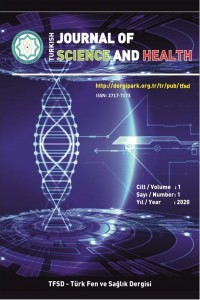
Turkish Journal of Science and Health
Yazarlar: Müjde KERKEZ, Behice ERCİ
Konular:Hemşirelik
DOI:10.51972/tfsd.941683
Anahtar Kelimeler:Quality of Life,Religious Coping,Palliative care,Burden,Caregiver
Özet: Objective:This study was conducted with descriptive-correlational designto determine the correlation between religious coping strategies and quality of life of the caregivers of elderly patients, staying in the palliative care unit and internal medicine clinics, during the care process. Material and Method:The sample of the study was composed of 69 caregivers of elderly patients staying in the internal medicine clinics and palliative care unitof Sahinbey Research and Application Hospital. Caregiver Information Form,World Health Organization Quality of Life Instrument Short Form and Religious Coping Scale were applied to the participants and thedata were analyzed using SPSS 22.0.Correlation and regression analysis was used to examine the correlation between the scales Results: A significant correlation was determined between the caregivers’ages and the quality of life and its subscales(p=0.001)The caregivers didnot use religious coping methods as their ages increased(p=0.005) Conclusions: It was determined that age and financial situation did not affect quality of life of the caregivers.There was a positive correlation between religious coping status and quality of life of the caregivers.Consequently,it was foundthat religious coping methods used by the caregivers to be at peace enhanced their quality of life.It is recommended for nurses to provide training and counselling to caregivers about how care burden willbe used and how quality of life willbe enhanced